Landscaping can convert ordinary outdoor spaces into attractive retreats, but the cornerstone of any spectacular yard is located beneath the surface in land grading. This post will look at how efficient Grading & Leveling Properties improve the aesthetics of your yard while also assuring its long-term health, sustainability, and Optimal Outdoor Living.
Overview of Grading in Landscaping:
Have you ever driven or lived on a dirt or unpaved road? The road is graded to keep potholes, washboards, and erosion problems at bay. This technique smoothes and evens the road by leveling the high spots and dispersing earth over the low points. Your oil pan will be thankful!
Similarly, Grading & Leveling Properties is an integral part of landscaping since it involves modifying the land’s surface to guarantee appropriate drainage and create an aesthetically pleasant outdoor environment. It is the process of leveling and contouring the ground in preparation for various landscaping tasks, such as installing a patio, creating a garden, or building a retaining wall.
Overall, it provides a smooth and equal surface that encourages efficient water flow, reduces erosion, and serves as a solid foundation for any structures or features in the landscape. Whether on a residential or commercial project, grading contributes to creating a functional and visually appealing environment.
Do you need to Regrade?
As previously said, you may want to level or alter the slope of your lawn for a specific purpose, such as building a structure or planting a garden. However, in some cases, you may need to regrade your surface. This includes:
- Normal wear and tear.
- Damage caused by chipmunks, moles, groundhogs, and other creatures
- Damage from utility work
- Restoring your lawn/landscape after removing trees or shrubs
Whether you are grading or regrading, there are a host of advantages you will enjoy.
Strategic Yard Grading Percentages and Ratios for Optimal Outdoor Living:
In landscaping, the percentage of a grade refers to the degree of slope in a given area, a percentage, or a ratio. This measurement determines how much height changes over a horizontal distance. For example, a 3% grade indicates that the elevation varies by 3 feet for every 100 horizontal feet. The following is a detailed look at several slope ranges in percentage and ratio forms and their typical applications.
- 1-2% Slope (50:1 to 100:1 Ratio): Suitable for regions requiring little drainage but no primary water flow, such as recreational lawns and light-use zones.
- 3-5% Slope (20:1 to 33:1 Ratio): Appropriate drainage around residential buildings is recommended to reduce the danger of water damage and ensure enough water flows away from the structure.
- 6-10% Slope (10:1 to 16:1 Ratio): This slope is ideal for places that require more extensive drainage, such as roadsides or larger gardens. Erosion control methods may be necessary.
- 11-15% Slope (6:1 to 9:1 Ratio): Typically utilized for agricultural or forestry applications where rapid drainage is required but difficult for construction or recreational purposes. Extensive erosion control measures are frequently necessary.
- 16-25% Slope (4:1 to 6:1 Ratio): Frequently too steep for many forms of development without extensive landscaping, such as terracing; significant erosion control is required to manage water flow and sustain the soil.
- More than 25% slope (less than a 4:1 ratio): To properly manage severe slopes and address usability issues, specialist landscape design solutions such as retaining walls, hillside steps, or switchback paths are required.
Note* The slope classifications listed above may overlap, and their recommended applications may differ depending on your project’s requirements and local environmental conditions. It’s critical to understand that these principles are flexible. Flexibility in applying them to your landscape conditions will result in more successful and practical grading outcomes.
Looking for professional Grading & Leveling landscape services?
Types of Land Grading:
Each piece of land is unique in terms of natural grading, soil composition, and vegetation, and each property owner has various requirements for it. As a result, several forms of land grading exist.
Bobcat Machinery
A Bobcat is a multipurpose piece of gear that can scoop and transfer dirt before using another attachment to flatten and level the new surface.
Drainage Solutions
Proper drainage is an essential aspect of any project. It can also be performed by grading the land on a slope so that water flows downhill and into a stream or runoff or by building drainage pipes underneath.
Excavation
Excavation may require creating a hole rather than filling one already present. Excavating is digging down to create a low-lying area, such as a foundation for a structure or road.
Surface Smoothing:
Even a flat plot of land is not flat. However, proper surface smoothing can ensure that your hardscaping project begins with a clean slate.
Topsoil Installation:
Sometimes, there isn’t enough dirt in the immediate region to grade the land as planned, so more topsoil may be required. Topsoil is also essential for providing a healthy soil base for plants to grow on and is more aesthetically beautiful than the current dirt.
Step-by-Step Process of Landscape Grading To Ensure Great Results:
Site Assessment: The first stage is to analyze the site to establish the current topography, soil conditions, and potential obstructions or issues. This evaluation helps determine the extent of work needed and devise an acceptable grading and leveling strategy.
Clearing and Excavation: Remove any plants, garbage, or buildings from the site before grading begins. Excavation may also be required to remove excess dirt or rocks that could block the grading process.
Rough Grading: Rough grading involves modifying the space with heavy equipment like bobcats, front loaders, and excavators to get the desired grade and contours. The idea is to cut and fill the earth to create a rough, flat surface.
Fine Grading: Fine grading occurs after rough grading and soil compaction to achieve the desired level and smoothness. In this process, precise grading equipment is utilized to polish the outlines and remove any high or low points.
Soil Compaction: Compacting soil ensures stability and prevents further settling. Vibratory rollers or plate compactors, for example, compress soil layers, increasing density and load-bearing capacity.
Drainage Planning: Proper drainage reduces water accumulation, erosion, and structural damage. The proper slope and contour are established during the grading process to let water flow away from the building area.
Drainage System Installation: Based on landscape needs, drainage systems, including French drains, catch basins, and underground pipelines, can be installed. These systems contribute to the efficient regulation of water flow and the prevention of water-related problems.
Final Grading: After installing drainage systems, final grading ensures a level and smooth surface. This includes making necessary contour changes, analyzing the slope, and ensuring proper compaction.
Quality control: Quality control procedures are used throughout the grading and leveling to ensure work meets required standards. Regular inspections, soil testing, and compliance with local standards and laws may be necessary.
Get Grading and Leveling services in Atlanta.
Benefits Of Grading Your Lawn
The primary objective for grading your property is to improve its beauty and usability, as well as your pleasure in the outside spaces. This is a considerable benefit in and of itself, but there are additional advantages to grading your lawn:
Better Drainage and Irrigation: Grading your grass prevents it from becoming excessively damp and swampy. Waterlogged soil indicates poor growing conditions and might lead to erosion. Grading properly increases drainage and the soil’s overall “health.” At the same time, a well-graded lot promotes healthier plant growth. You will have the ideal moisture level in the soil. Water will not pool or run off too quickly for the roots to absorb.
Note: healthy grass/plants + fewer weeds = maximum enjoyment and beauty!
Retention of Topsoil: Topsoil contains many nutrients that grass and plants require to survive and thrive. When the slope of your property is excessively steep, precipitation washes away these important particles. Grading allows you to reduce runoff while also protecting your topsoil.
Foundation Protection: As previously said, some people grade their lawns or yards to divert water from their dwellings. Water can damage your foundation and, if left uncontrolled, cause structural instability. Take precautionary measures to avoid costly difficulties down the road.
Optimal Land Utilization: Grading shapes the terrain for efficient use, maximizing the site’s utility, especially valuable in urban environments with limited space.
Ease and Opportunities: If your lawn is bumpy in early spring, it can be challenging to mow, construct play equipment, plant flowers, and more. Grading contributes to creating appropriate surfaces for play, gardens, decks, walks, walls, and other projects that maximize the use of your yard. Best of all, your outside area will be easier to maintain, giving you more time to relax.
Wrap up:
Leveling your yard is critical to protecting your home and garden from long-term damage and costly repairs.
Do you have a rugged backyard? If so, then we have got you covered. At Outdoor Makeover and Living Spaces, we offer you top-notch landscape Grading & Leveling services in Atlanta and the surrounding area. Whether prepping a site for development, landscaping, or constructing a stunning outdoor living area, our team of qualified specialists uses the latest techniques and equipment to achieve great results. So, what are you waiting for? Let’s get connected today!
Frequently Asked Questions
Grading in home construction is leveling and contouring the land upon which a house will be built. It enables good drainage, reduces flooding and erosion, and provides a solid foundation for the construction.
Atlanta enjoys a variety of weather conditions, including storms. Proper grading diverts storms from the foundation, reducing waterlogging and structural damage. It also helps in meeting local building laws and regulations.
The best materials for constructing an outdoor fireplace depend on your design preferences, budget, and climate. Standard options include durable materials like brick, stone, concrete, and metal. Each material offers its unique aesthetic appeal, durability, and maintenance requirements. Choose materials that can withstand outdoor elements and enhance the overall look of your outdoor space while aligning with your budget constraints
The cost of lawn leveling and grading can vary depending on factors such as the size of the area, the extent of the work needed, and the specific services offered by landscaping companies in Atlanta.
Hiring professionals will give you peace of mind as they professionally handle independently.
Lawn leveling and grading can improve drainage, prevent water pooling, and enhance your outdoor space’s overall appearance and usability.
To ensure compliance with regulations, it’s essential to inquire about any local ordinances or permitting requirements before starting lawn leveling and grading projects in Atlanta.
Yes, proper grading can improve drainage and prevent water damage, which is particularly beneficial in Atlanta’s climate, known for heavy rainfall and humid conditions.
The process typically includes site evaluation, soil analysis, earthmoving, leveling, compacting, and finishing touches to ensure a smooth and even surface.
lawn leveling and grading services are available for both, helping to create safe, functional, and visually appealing outdoor spaces.

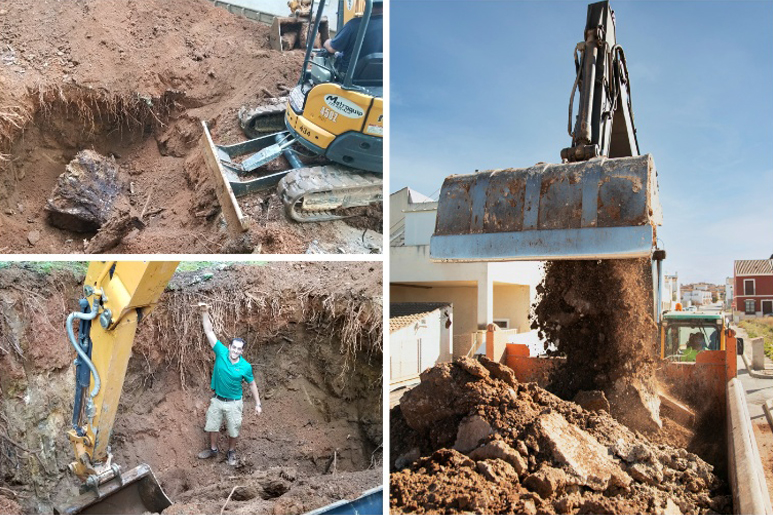
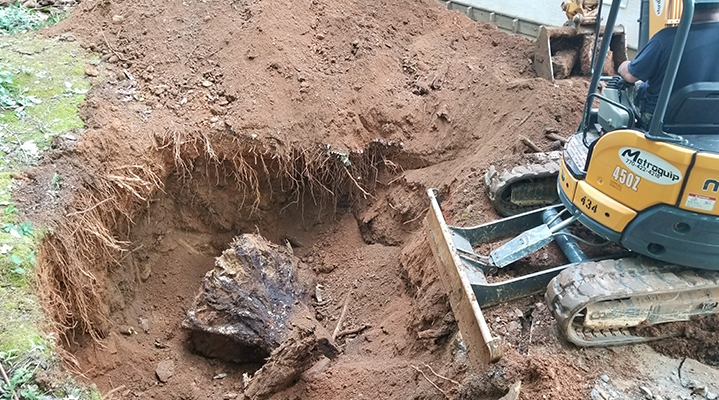
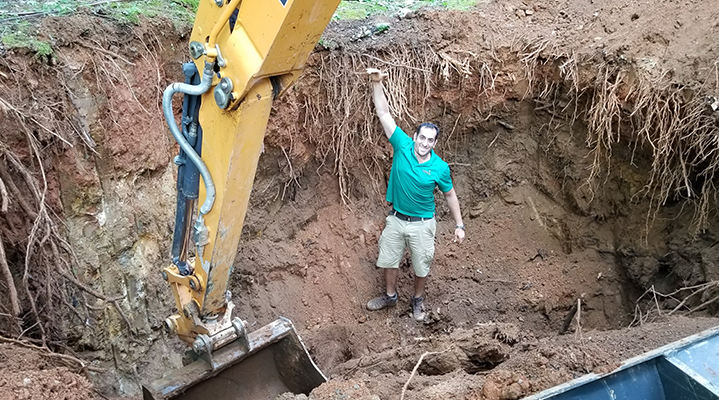
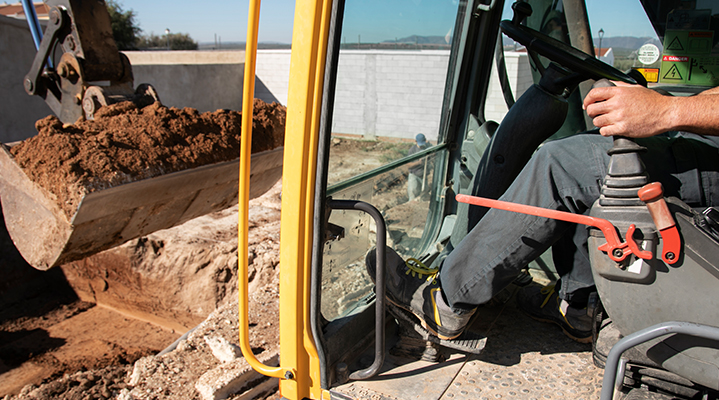
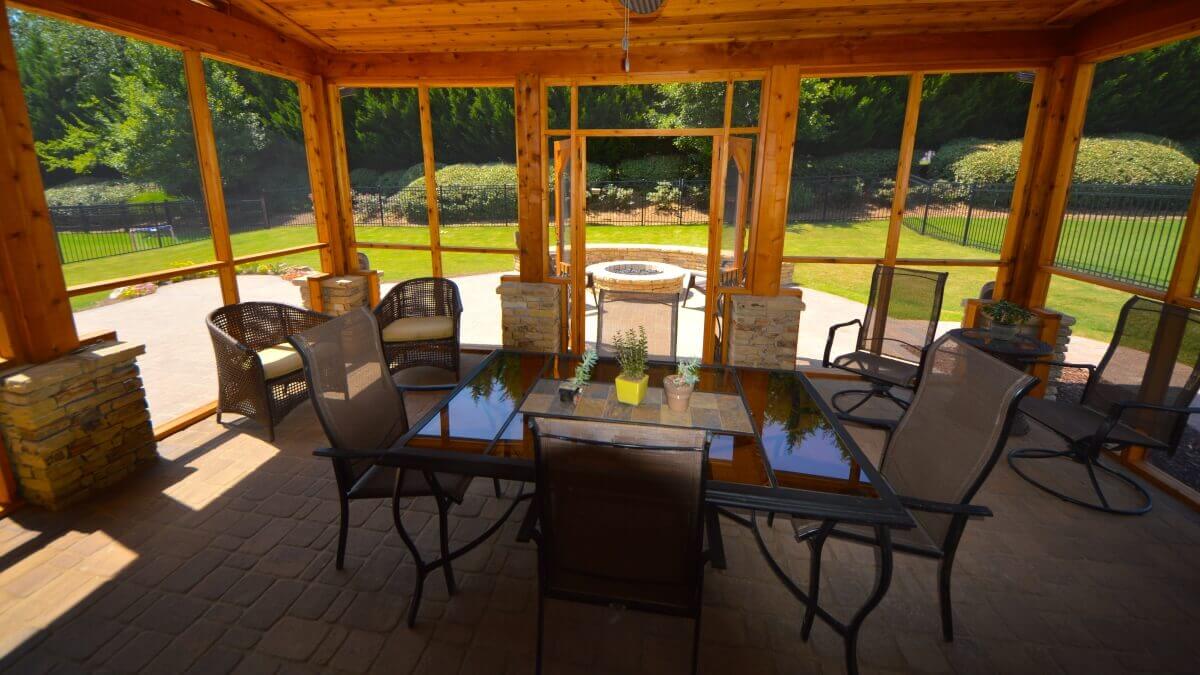 Screened-in Porch Benefits for Outdoor Living Experience
Screened-in Porch Benefits for Outdoor Living Experience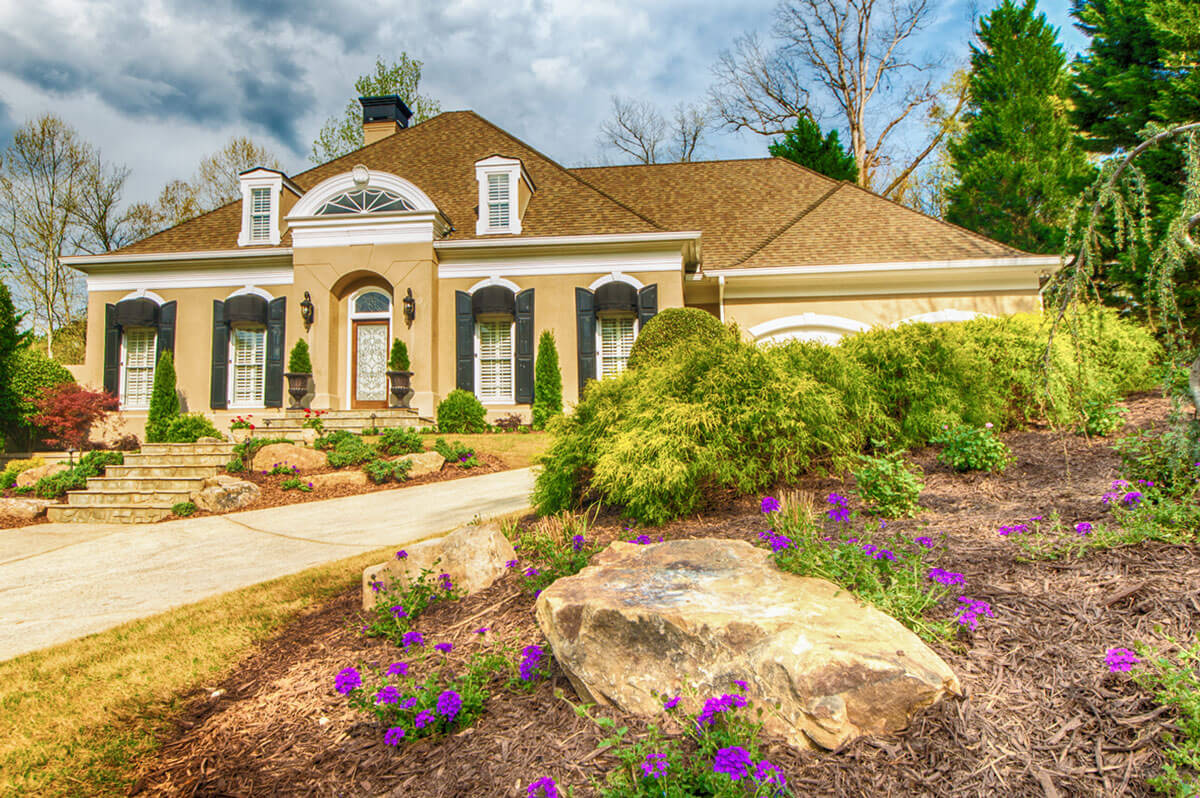 Landscape Preparation For Spring
Landscape Preparation For Spring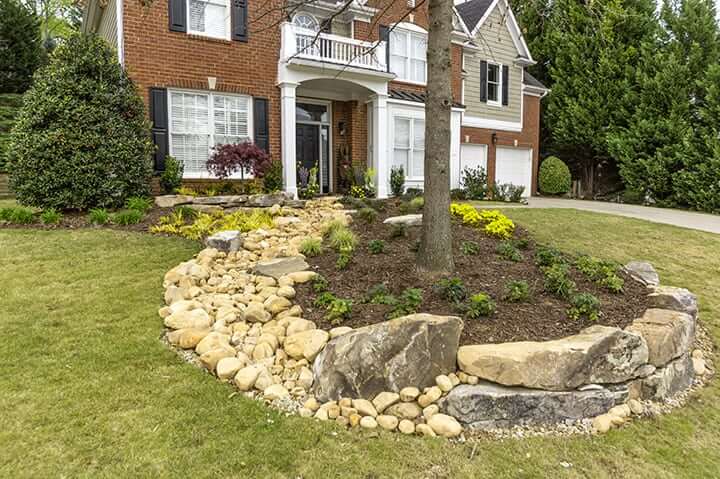 Preparing for Winter: 10 Tips for Winterizing Your Landscape
Preparing for Winter: 10 Tips for Winterizing Your Landscape
LET'S BE SOCIAL: